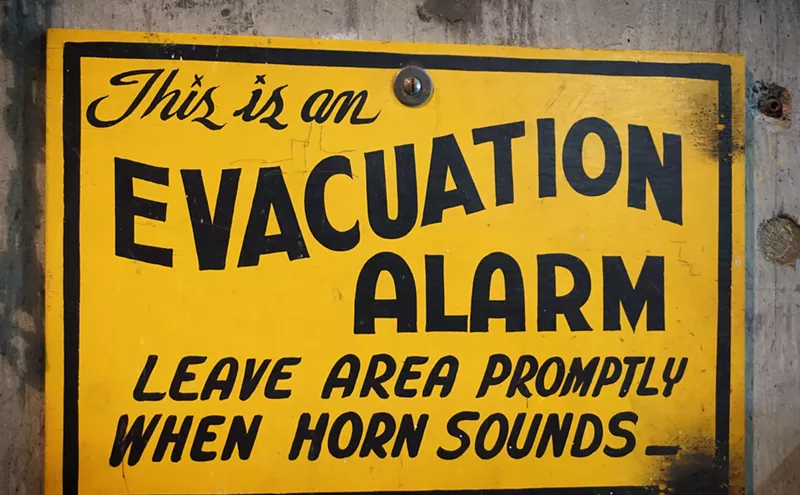"The people's musical returns!" trumpets a poster advertising the appearance of Blood Brothers in an English theater. It's kind of amusing that a show written by blue-collar advocate Willy Russell as relief from the budget-busting spectacles of Andrew Lloyd Webber would wind up competing with Webber in both ticket prices and tenure. In London, New York and cities across Europe and the United States, long runs for Blood Brothers have made Russell a wealthy man for its portrayal of how the economic circumstances we're born into determine our futures.
Russell--also staged worldwide with his comic dramas Educating Rita and Shirley Valentine--gained prominence in theater circles during the '80s, when he was an outspoken critic of the conservative Thatcher regime, but it would be unfair to call the playwright and composer a hypocrite for stockpiling more than a few quid. One of his artistic missions has always been to make clear that poverty is not evidence of a character flaw, but since he was raised in a very modest home himself, cynics might submit that his own success story contradicts his politics. Moreover, hawking those politics is what made him rich. American conservatives, certainly, would point this out; most Brits will at least acknowledge their social divisions, while the United States fancies itself a classless society. The different approaches to marketing Blood Brothers in the two countries drive this point home. Stateside, there's less emphasis on advertising this show as "the people's musical" and more as a fable about mystical fate.
It's that, too; the narrator for this story about twin brothers separated at birth into vastly different households is a seer who wields tarot cards and crystal balls and sees ominous signs in spilled salt and magpies. Most of the characters are bedeviled by superstition, especially one prophecy I hadn't heard that fuels the entire arc of action here: If either of a pair of separated twins is informed that they have another roaming the planet, both will die immediately. This one sounds a little too convenient for Russell's purposes to have originated elsewhere, but readers of this column who are interested in the arcane might recognize it.
Political and cultural details aside, numerous problems plague both the book and score to Blood Brothers that Theatre Three, in a production directed by Terry Dobson, can't quite overcome. Dobson and his cast, in fact, add a couple of complications of their own in the process. But a pair of unusually clear-eyed, unfettered and forceful lead performances lends Theatre Three's version a sympathetic ardor that lingers well past the performers' final bows.
Set in contemporary England, Russell's musical follows the intertwined lives of Mickey (Michael Turner) and Eddie (Christopher Gleason) as recounted by the aforementioned mysterious Seer (Liz Mikel). Both are born into the welfare-aided, single-parent home of Mrs. Johnstone (Sally Soldo, wise and maternal but sporting an English accent that fades in and out like a weak radio station signal). Desperate to avert hunger in an already large family, she reluctantly agrees to give one of her twins to the affluent but infertile Mrs. Lyons (Julie Johnson, wonderfully chilly and equally desperate in her desire to love) and never disclose this secret. Through a series of destined accidents, the boys become best friends--literally "blood brothers," as they clasp skin-pricked hands in earnest oath--but are forced after high school to take dramatically divergent paths. Add a flirtatious young woman named Linda (Julie Stirman) who apparently has a thing for both of them, and you know it's only a matter of time before more blood is spilled.
As has been noted by many other critics, the music and lyrics in Blood Brothers betray the inexperienced composer that playwright Russell definitely is. For the most part, I found the songs unobtrusive interludes that ferry the tale along--not a bad thing, since musical writers who let their tunes take the lead often wind up penning the most egregious hokum when they switch to plot and dialogue. One irksome exception in this show is the song "Marilyn Monroe" that bookends both acts. It inexplicably stretches comparisons between the movie star and a multitude of characters and situations in this production until she and they snap.
The big numbers are reserved for the diva trio of Soldo, Johnson and Mikel. All are in unsurprisingly fine vocal form, although Mikel's Seer character--a kind of Bloody Mary knockoff--feels a bit extraneous here. Do we really need superstition personified to endow this show with portent? She often appears to have stepped in from a different musical.
Otherwise, Blood Brothers boasts a large cast that's mostly new to Theatre Three's in-the-round space, including an ensemble of six young adults who play everything from neighbors to cops to judges to milkmen. In some cases, their enthusiasm outstrips their technique--from the ever-troublesome English accent to varieties of comic tone that waver between subdued and shrill, they're a ragtag crew that sometimes makes you feel as if you're watching a college production featuring first-year drama students.
Nowhere is this more emphatic than that fearsome theatrical tar pit in which many an able performer has gotten stuck--grown-ups playing children. The trick here is to recapture the memory of how, generally speaking, every sensory experience is more vivid and all-consuming of the attention during childhood. That's why time seems to pass so excruciatingly slow when you're a preadolescent; everyday sensations burn themselves longer and deeper into your protean psyche. This translates as an utter unawareness of self, which would presumably be antithetical to the discipline of acting. Because so few can do it, you often get the most sentimental or simply silly caricatures--childish behavior rather than being a child. Many of the neophytes here haven't found a way to pull it off.
What saves this staging of Blood Brothers--indeed, makes it memorable--is the two young men, also new to T3, who play the twins Mickey and Eddie. Turner and Gleason move from the pranks of 7-year-olds to adult responsibilities with impressive seamlessness. They're as convincing when they giggle about the word "fuck" on the playground as they are while sparring as college-aged chums. It's the details of their evolving friendship that give this production's tragic core real heft--taking in a porn film together, offering immature relationship advice, pining over a sense of personal incompleteness when the other isn't around. Turner has been given the meatier role as impoverished, embittered Mickey, and he's marvelous as he plays to the highest rows, evoking laughs and gasps.
With several caveats, I recommend Theatre Three's Blood Brothers, if only because the two star-crossed siblings build to a showdown that had the audience sucking in its collective breath. I just wish playwright Willy Russell didn't need to stack the deck so much to illustrate his opinions about the connections between poverty, crime and hopelessness. There are fine points to be scored in this seemingly endless debate, but that means a concession from both sides: Yes, poor people can raise themselves above their origins, but that process requires a daunting determination and abilities that many of us--even conservative politicians from middle- and upper-class backgrounds--don't possess. Can we realistically expect the poor to be more resourceful than, say, Dubya? Blood Brothers flirts with such complexities but is ultimately as interested in the ad hominem argument as any Webber extravaganza is in exploiting the easy, grand emotional gesture. Stoking class friction--however legitimate--is just a more noble way to go about it.












